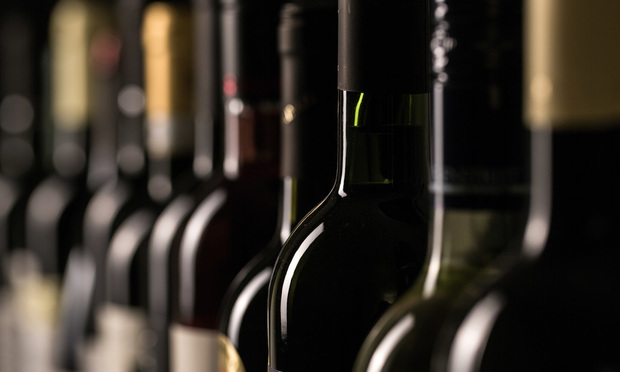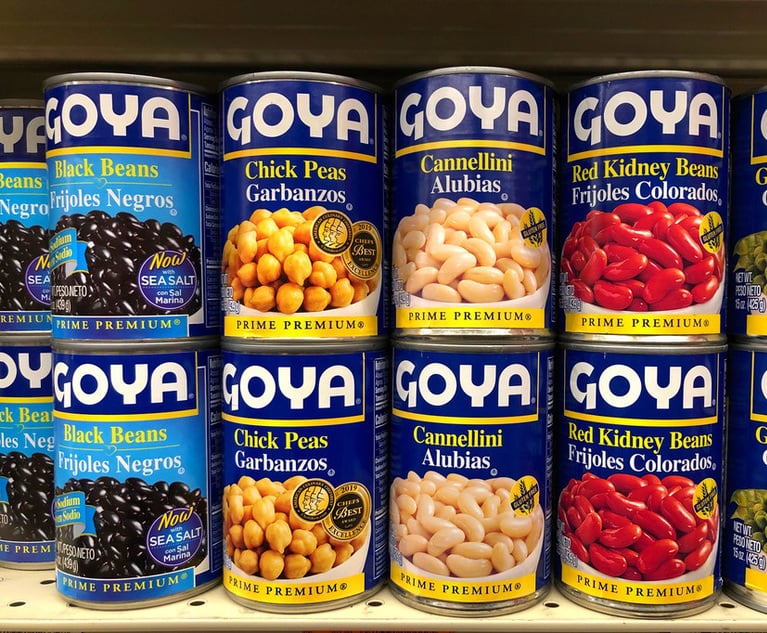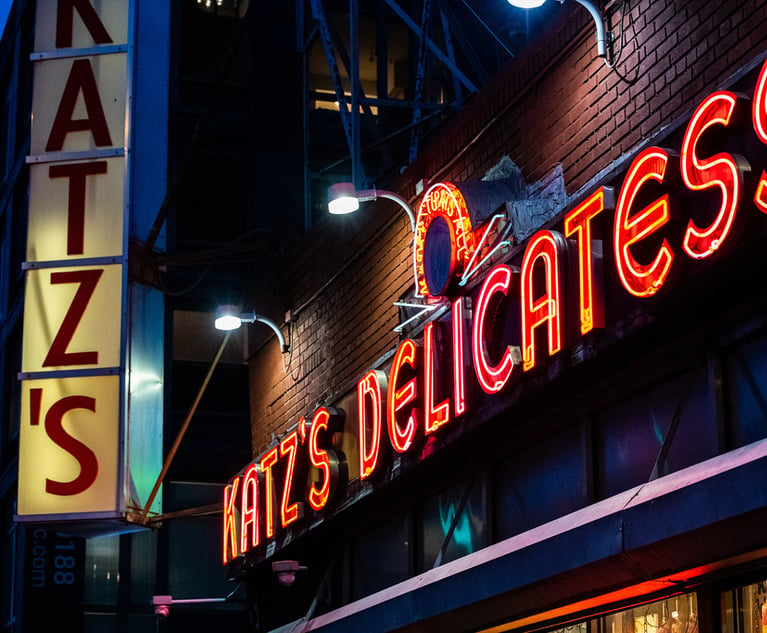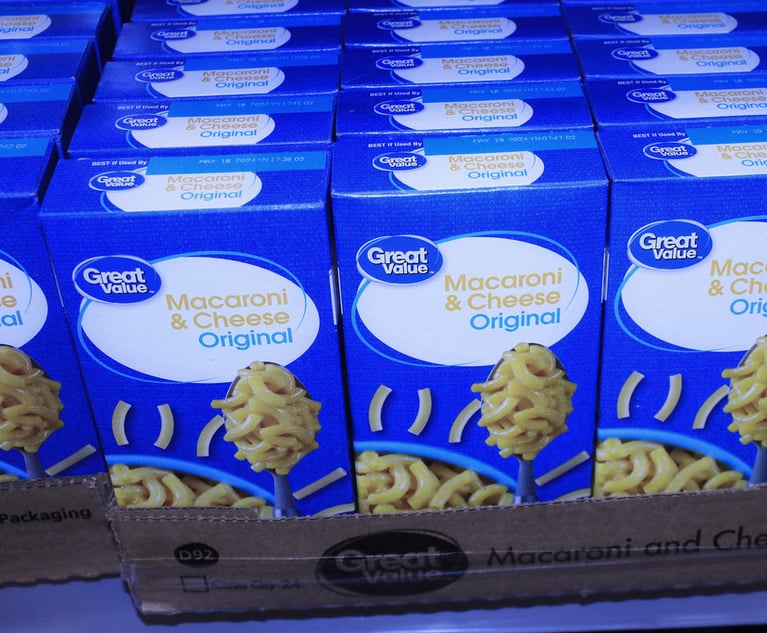Lawsuits Nationwide, Proposed NY Legislation Follow SCOTUS Ruling on Interstate Wine Shipping
A national wine retailers group says that 21 states currently have laws violating the constitution in the wake of the Supreme Court's ruling in June in Tennessee Wine v. Blair and, already, seven states are facing litigation. But in trend-setting New York, it says, it wants to see legislation passed, rather than a court fight.
September 10, 2019 at 11:46 AM
7 minute read
 (Photo: Bigstock)
(Photo: Bigstock)
In the wake of a U.S. Supreme Court decision that some say prevents states from discriminatorily banning out-of-state retailers from shipping wine to in-state consumers, a national retailers group is pushing to get legislation passed in Albany that would do away with a key part of New York's current wine-sales legal structure.
The structure, according to the wine retailers group, effectively bans out-of-state wine retailers from shipping their bottles into New York while allowing in-state retailers to let their wine shipments flow.
The group, the National Association of Wine Retailers based in Sacramento, also says that 21 states currently have laws violating the Constitution in the wake of the Supreme Court's ruling in June in Tennessee Wine and Spirits Retailers Association v. Blair.
And it says that it's currently supporting a run of lawsuits that have sprung up this summer, after the Tennessee Wine decision, in seven states. The suits challenge the states' respective ways of stopping out-of-state retailers and stores from sending their vintages into those states.
But in New York, according to the association's executive director, Tom Wark, "we much prefer to go the legislative route than litigation," in part, he told the Law Journal on Monday, because "New York is a very influential state and so the way [it] passes legislation [on this issue] will influence other states as they go forward, and we like the idea of that."
In June, Justice Samuel Alito Jr., writing for 7-2 Supreme Court majority, ruled in Tennessee Wine v. Blair that a Tennessee law prohibiting out-of-state retailers from obtaining a state retail license to operate in-state stores was unconstitutional under the U.S. Constitution's Commerce Clause.
"Because Tennessee's two-year residency requirement for retail license applicants blatantly favors the state's residents and has little relationship to public health and safety, it is unconstitutional," Alito wrote, in part, in a decision that undercuts laws engaging in "protectionism" of residents, and that detailed why, in the alcohol-related context, Tennessee's law was not saved by the U.S. Constitution's 21st Amendment.
Alito's holding did not directly address whether laws found in many states effectively banning out-of-state retailers from shipping to consumers were likewise unconstitutional, but a host of retailers and some lawyers believe the decision can be interpreted to mean that.
To make the argument, Wark and others in part point to Alito's continual citing, as support for the majority's position in Tennessee Wine, of the high court's 2005 decision in Granholm v. Heald. In Granholm, a 5-4 majority court declared unconstitutional New York and Michigan laws that had allowed in-state wineries to ship directly to consumers but banned out-of-state wineries from doing the same.
"Most recently, in Granholm, we struck down a set of discriminatory direct-shipment laws that favored in-state wineries over out-of-state competitors," Alito wrote in Tennessee Wine.
Now, according to Wark and a news release from his group, litigation is popping up across the country challenging as discriminatory—and as wrongly "protectionist," despite opposition often citing the alcohol-focused, prohibition-ending 21st Amendment—laws that allow in-state retailers and stores to ship their wines to residents but prevent out-of-state retailers from engaging in such business.
The practical effect of a change in the 21 states' laws would be twofold: One, there would be the obvious boon to businesses that would be able to ship their products to more consumers; and, as described by New York Times wine critic Eric Asimov, there would be "a wellspring of [new] opportunities to consumers" who could now "scour the country for hard-to-find bottles and the best retail deals."
Both the New York Attorney General's Office and the Office of Gov. Andrew Cuomo did not respond to requests for comment Monday, including giving no response to a question about whether New York's laws, as presently constituted, are unconstitutional in light of the Supreme Court's Tennessee Wine ruling.
The State Liquor Authority also did not respond directly to the question of whether New York's laws are unconstitutional.
But in response to a broader question about the existing law in New York, a Liquor Authority spokesman, William Crowley, said that "in order to obtain a liquor store license in N[ew] Y[ork], an applicant needs to have a physical premises in the state," and "the only businesses outside of N[ew] Y[ork] that may sell alcohol to N[ew] Y[ork] S[tate] residents are out-of-state wineries with a direct shippers permit issued by the S[tate] L[iquor] A[uthority]."
According to Wark, the push is on already to formulate a New York bill that will both hopefully pass through the Legislature and allow out-of-state retailers and stores to ship to residents.
"We hope to see a bill on this issue drop after the first of the year [in 2020]," he told the Law Journal, though he wouldn't comment on whether there are particular state legislators ready to sponsor such a bill.
He added, "We're in the process right now of writing a bill that will satisfy the State of New York's requirements that out-of-state retailers [that, under the bill, would be allowed to ship into New York] comply with New York oversight laws, submit to New York legal jurisdiction and have to pay taxes to New York."
Still, such a bill may be fought hard in Albany, regardless of the Tennessee Wine ruling and how it is interpreted by some, as wholesalers have reportedly felt harmed by, and taken action against, the growth of interstate wine shipment sales before. Two New York Times articles, for instance, have pointed out that wholesalers lobbied hard in recent years to make sure that states enforce their existing laws restricting interstate wine shipping. Many of those laws, said one of the articles, appeared to mostly go unenforced until the wholesaler lobbying came into play.
"The efforts to curtail interstate shipping, many retailers believe, are a result of heavy lobbying by wine and spirits wholesalers, supported by generous campaign contributions to state legislators and other elected officials," a 2017 Times story headlined "Wines Are No Longer Free to Travel Across State Lines" said.
The story added, "In New York State, for example, wholesalers have given $2.7 million to candidates for office, compared with $678,000 donated by retailers, according to the Nation Institute on Money in State Politics."
Wark said he hopes a battle in Albany for a new law is begun and fully engaged and that the battle is won next year.
"The Court spoke loud and clear in Tennessee Wine v. Thomas when it held that states may not discriminate against out-of-state wine stores by banning their wine shipments into the state, while at the same time allowing their own wine stores to ship wine to their state's consumers," he said in a statement. "While we support the lawsuits filed in seven states, we think lawmakers in the other 14, including New York, ought to take it upon themselves to follow the Constitution, fix their wine shipping laws, and give their consumers access to wines they can't find locally."
This content has been archived. It is available through our partners, LexisNexis® and Bloomberg Law.
To view this content, please continue to their sites.
Not a Lexis Subscriber?
Subscribe Now
Not a Bloomberg Law Subscriber?
Subscribe Now
NOT FOR REPRINT
© 2025 ALM Global, LLC, All Rights Reserved. Request academic re-use from www.copyright.com. All other uses, submit a request to [email protected]. For more information visit Asset & Logo Licensing.
You Might Like
View All

NYC’s Oldest Deli Agrees to Update Bathrooms, Entrances to End ADA Charges
4 minute read
Ben & Jerry’s Accuses Corporate Parent of ‘Silencing’ Support for Palestinian Rights
3 minute read
Walmart Accused of Misrepresenting 'Cheese' Ingredients in Great Value's Macaroni & Cheese
3 minute readTrending Stories
- 1South Florida Attorney Charged With Aggravated Battery After Incident in Prime Rib Line
- 2'A Death Sentence for TikTok'?: Litigators and Experts Weigh Impact of Potential Ban on Creators and Data Privacy
- 3Bribery Case Against Former Lt. Gov. Brian Benjamin Is Dropped
- 4‘Extremely Disturbing’: AI Firms Face Class Action by ‘Taskers’ Exposed to Traumatic Content
- 5State Appeals Court Revives BraunHagey Lawsuit Alleging $4.2M Unlawful Wire to China
Who Got The Work
J. Brugh Lower of Gibbons has entered an appearance for industrial equipment supplier Devco Corporation in a pending trademark infringement lawsuit. The suit, accusing the defendant of selling knock-off Graco products, was filed Dec. 18 in New Jersey District Court by Rivkin Radler on behalf of Graco Inc. and Graco Minnesota. The case, assigned to U.S. District Judge Zahid N. Quraishi, is 3:24-cv-11294, Graco Inc. et al v. Devco Corporation.
Who Got The Work
Rebecca Maller-Stein and Kent A. Yalowitz of Arnold & Porter Kaye Scholer have entered their appearances for Hanaco Venture Capital and its executives, Lior Prosor and David Frankel, in a pending securities lawsuit. The action, filed on Dec. 24 in New York Southern District Court by Zell, Aron & Co. on behalf of Goldeneye Advisors, accuses the defendants of negligently and fraudulently managing the plaintiff's $1 million investment. The case, assigned to U.S. District Judge Vernon S. Broderick, is 1:24-cv-09918, Goldeneye Advisors, LLC v. Hanaco Venture Capital, Ltd. et al.
Who Got The Work
Attorneys from A&O Shearman has stepped in as defense counsel for Toronto-Dominion Bank and other defendants in a pending securities class action. The suit, filed Dec. 11 in New York Southern District Court by Bleichmar Fonti & Auld, accuses the defendants of concealing the bank's 'pervasive' deficiencies in regards to its compliance with the Bank Secrecy Act and the quality of its anti-money laundering controls. The case, assigned to U.S. District Judge Arun Subramanian, is 1:24-cv-09445, Gonzalez v. The Toronto-Dominion Bank et al.
Who Got The Work
Crown Castle International, a Pennsylvania company providing shared communications infrastructure, has turned to Luke D. Wolf of Gordon Rees Scully Mansukhani to fend off a pending breach-of-contract lawsuit. The court action, filed Nov. 25 in Michigan Eastern District Court by Hooper Hathaway PC on behalf of The Town Residences LLC, accuses Crown Castle of failing to transfer approximately $30,000 in utility payments from T-Mobile in breach of a roof-top lease and assignment agreement. The case, assigned to U.S. District Judge Susan K. Declercq, is 2:24-cv-13131, The Town Residences LLC v. T-Mobile US, Inc. et al.
Who Got The Work
Wilfred P. Coronato and Daniel M. Schwartz of McCarter & English have stepped in as defense counsel to Electrolux Home Products Inc. in a pending product liability lawsuit. The court action, filed Nov. 26 in New York Eastern District Court by Poulos Lopiccolo PC and Nagel Rice LLP on behalf of David Stern, alleges that the defendant's refrigerators’ drawers and shelving repeatedly break and fall apart within months after purchase. The case, assigned to U.S. District Judge Joan M. Azrack, is 2:24-cv-08204, Stern v. Electrolux Home Products, Inc.
Featured Firms
Law Offices of Gary Martin Hays & Associates, P.C.
(470) 294-1674
Law Offices of Mark E. Salomone
(857) 444-6468
Smith & Hassler
(713) 739-1250






